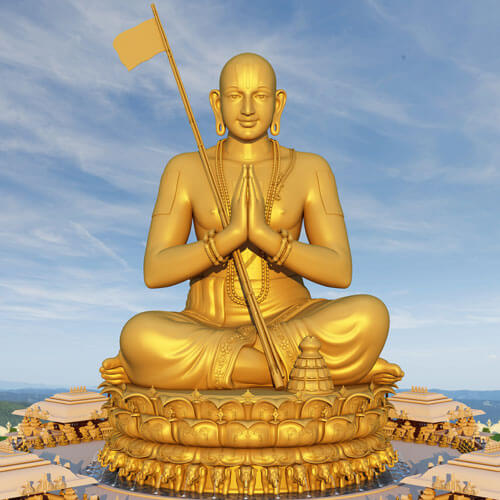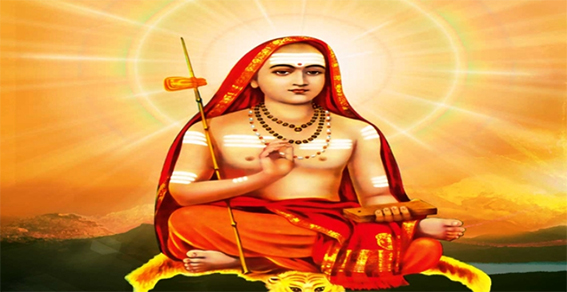Rapid Fire
Rapid Fire Current Affairs
- 26 Apr 2023
- 6 min read
Insights into Mars' Core and Potential Habitability
A new study has revealed that Mars' core is smaller and denser than previously believed, with a radius estimated to be between 1,780-1,810 kilometres. The team of international researchers used seismic data from NASA's InSight Mars Lander to analyse seismic waves that pass through different materials in Mars' interiors. They found that the core is likely in a liquid state, and is composed of mostly iron with light elements, including sulphur and oxygen, which comprise a fifth of its weight. The study also highlighted that the core's physical properties could inform better models of how Earth and Mars formed.
Planetary cores are important because they can sometimes generate a planet-wide magnetic field, which Mars' core does not do. Earth's magnetic field is generated in its outer liquid core, and it protects the planet from solar winds, allowing it to keep water. However, Mars' core does not generate this protective shield, making the planet's surface conditions hostile to life. Though Mars is believed to have possessed a magnetic field in the past and was once habitable, the planet's interiors played a key role in its evolution to its current state. Even though the InSight mission has been retired, researchers are still analysing the gathered data to better understand the Red Planet's composition and properties.
Read more: Red Planet Day, NASA's InSight Mars Lander
Ramanujacharya
Recently, the Prime Minister has paid tributes to Sri Ramanujacharya on his Jayanti. Ramanujacharya, born in 1017 in Sriperumbudur in Tamil Nadu, is widely respected as a Vedic philosopher and social reformer. He is renowned for advocating social equality and justice, which was revolutionary for his time, and for his propagation of the Bhakti movement, which inspired other Bhakti schools of thought. He was instrumental in reviving the Vishishtadvaita subschool of Vedanta philosophy, which posits non-dualism of the qualified whole. Ramanujacharya wrote nine scriptures known as the navaratnas and composed numerous commentaries on Vedic scriptures, including the Vedanta Sutras and the Bhagavad-Gita. His teachings emphasized the need for harmony with nature and compassion, humility, equality, and mutual respect among all people. He advocated the concept of "vasudhaiva kutumbakam," which translates to "all the universe is one family."
Ramanujacharya embraced the socially marginalized and condemned them and asked royal courts to treat them as equals. He liberated millions from social, cultural, gender, educational, and economic discrimination with his belief that every human is equal regardless of nationality, gender, race, caste, or creed. Because of his work to promote social equality, the 213-feet tall statue of Ramanujacharya in Hyderabad is known as the Statue of Equality.
Read more: Philosopher-saint Ramanujacharya
Jagadguru Adi Shankaracharya
Recently, the Prime Minister paid tributes to Jagadguru Adi Shankaracharya on his birth anniversary. Jagadguru Adi Shankaracharya, born in the 8th century AD in Kerala, is one of the most revered philosophers in Indian history. He is considered to be the founder of the Advaita Vedanta school of philosophy, which emphasizes the ultimate unity and oneness of all existence. Shankaracharya is credited with reviving Hinduism and restoring its philosophical and spiritual foundation. He was a prolific writer, composing commentaries on the Vedas, Upanishads, and other important texts. His most significant works include the commentary on the Brahma Sutras (Bhashya), Bhajagovinda Stotra, Nirvana Shatakam, and Prakaran Granths. Shankaracharya was also a social reformer and worked to eliminate caste-based discrimination and promote social equality.
Read more: Adi Shankaracharya
India’s First Water Metro
The Prime Minster has recently inaugurated the first phase of Kochi Water Metro in Kerala – first-ever metro system of its kind. It’s a public boat service integrated with the metro rail network. The project is being implemented by Kochi Metro Rail Corporation with the financial assistance provided by a German funding agency.
The main objective is to link ten island communities in Kerala's city with the mainland, resulting in shorter travel times and more cost-effective transportation.
Moreover, Kochi Water Metro is a modern ferry transport project consisting of numerous boats running along 16 routes across Greater Kochi. Equipped with cutting-edge safety devices and advanced technology, the ferry ensures smoother commutes and more efficient travel experiences. The boats in the Kochi Water Metro are powered by batteries and require only 10 to 20 minutes to traverse each route.






